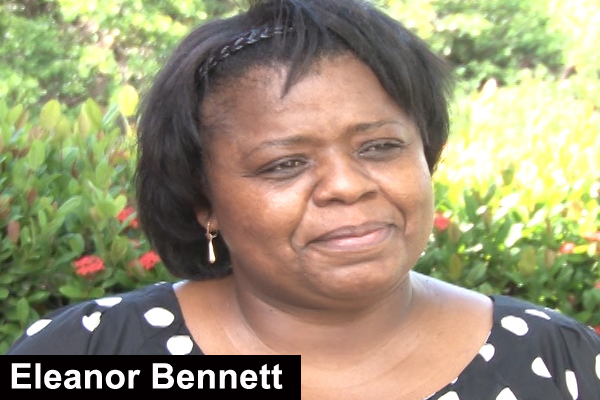Persons suffering with mental disabilities often have the most difficulty finding gainful employment; however, the Ministry of Health is attempting to change that harsh reality by hosting a workshop to address the discrimination that such persons face in the workplace and hopefully assist people with mental illness to find work.
The two-day workshop, which is being held at the Belize Institute of Management (BIM), is focused on the need for relevant stakeholders to provide employment for persons with mental disabilities as well as to provide coaching and training to potential employers for the inclusion of mentally challenged persons who have generally been left out of the workforce.
Eleanor Bennett, who is the Nursing Administrator in the Ministry of Health’s Mental Health Unit, told Amandala that the initiative is long overdue and comprises a three-part project which began by targeting those who work as mental healthcare providers.
She said, “Our basic message is to include people with mental disabilities, and part of social inclusion obviously includes work, so we want people to understand that others should not be defined by their diagnosis – oftentimes we find that people who have had a nervous breakdown are kept at home and even if they go back to work, they meet an environment that is very hostile and it’s stressful for them, so what we are illustrating today is that people with mental disabilities can work; it’s a part of their recovery.”
Since there is a great deal of skepticism in regards to whether the business community can successfully integrate victims of mental illness into its operations, Bennett admitted that it will not be an easy feat and explained that the Health Ministry intends to take things one step at a time by first legislating policies as a part of the plan.
“What we hope to get from this workshop is just an introduction to models of what we call supportive employment, which is teaching the mental health staff on how to coach people with mental health disorders, how to get them back to work and how to provide support on the job so those models will tell us what we already have, what we need here in Belize and develop a program where we can support people with mental illness to go back to work – and not washing cars or folding clothes, I mean if they have training as a secretary, they work as a secretary,” she said.
Bennett went on to note, “Here in Belize, we believe that persons with mental illness cannot contribute, but we hope to work with employers and potential co-workers on how to make an environment that is conducive to people who have had mental health issues and understand that mental illness does not take away all their abilities. These are often very productive people but are not given the chance because they have a label of mental illness. Certainly we would need to have legislation to have employers hire a percentage of people not only with mental disabilities, but with physical disabilities as well.”
Carey Ann Clarke, a volunteer who works with the international organization Disability Aid Abroad, told us that their organization has partnered with the Ministry to disseminate information which is geared towards making the process adaptable in Belize and based on models utilized by other countries, it is quite possible.
She stated, “My organization supports people with disabilities and I’m here to share some experiences that my organization has had in other countries with practical examples of how we have been able to support people with mental health issues. What we are trying to do is to develop job coaches to act as a mediator between the employer and the mental patient so that the person can have a resource, someone to turn to and discuss their issues with and if the employer needs assurance then he can turn to the job coach and also discuss whatever issues relating to the job environment.”
Also in attendance for the workshop were representatives of the Human Rights Commission, the Labor Department, Organization for Diverse Abilities, and the Social Security Board.

